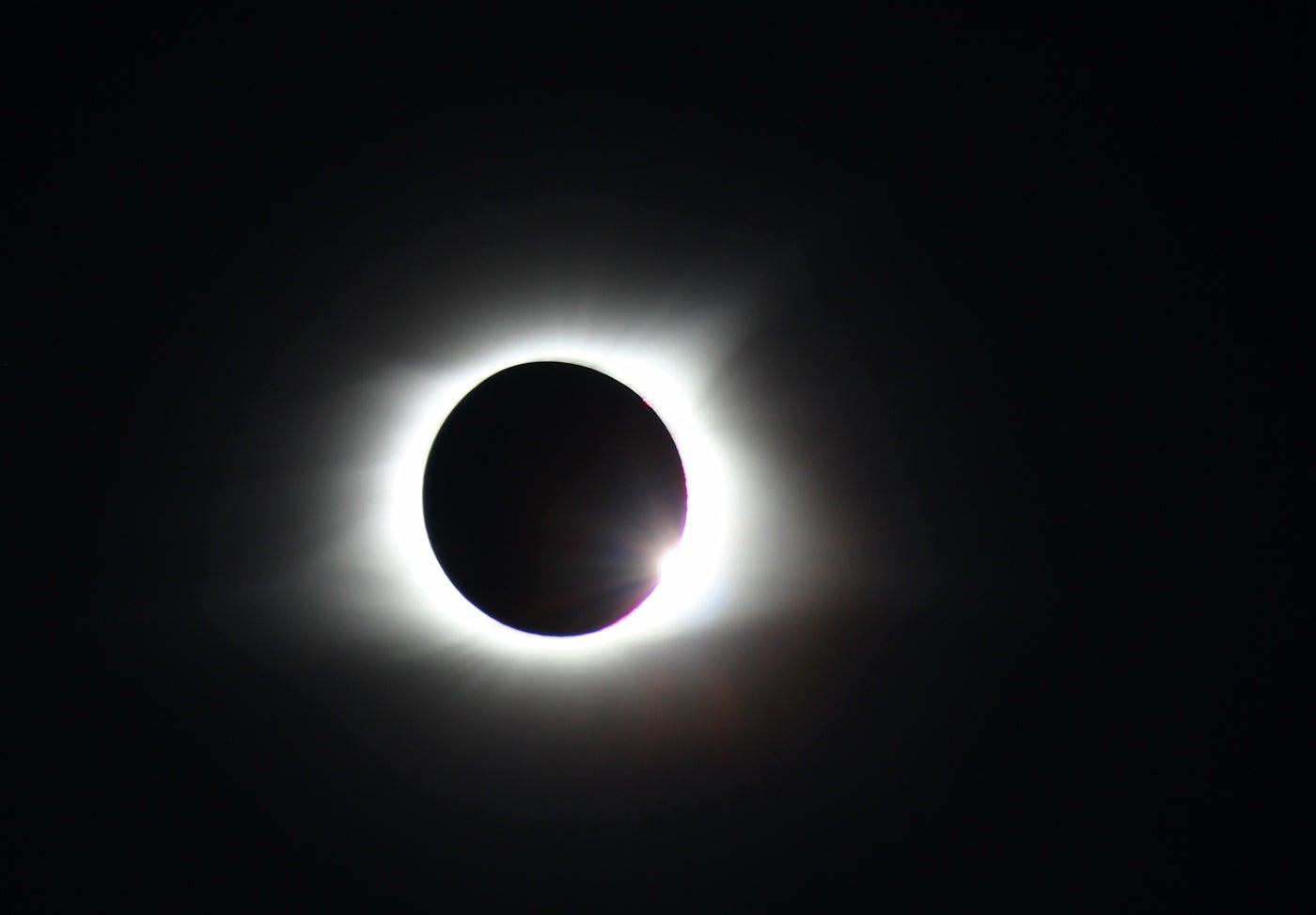The Great American Solar Eclipse
Published 10:30 am Friday, April 5, 2024

- Photo by Ben Kleppinger
By Erin Skinner Smith
WinCity Voices
This piece was originally published on wincityvoices.org.
At first glance, the universe as a “cold, lonely place” might leave us feeling irrelevant, immaterial. But that’s not the point Dr. Tyson is making. Instead, he’s saying that because the universe is vast and unknowable, humans should strive harder to find meaning in their fleeting existence. The mystical laws of nature should make us feel connected, not alone. It is our privilege to seek this cosmic perspective. It should inspire us, not depress us.
I’m guessing by now you’ve heard about the rare solar eclipse set to occur in the U.S. on April 8. America won’t see another eclipse this good for twenty more years (if you’re wondering how we know, it’s because we can track the orbits of the earth, moon, and sun now with extreme precision). The 115-mile-wide path of totality stretches from Texas to Maine and includes Kentucky. During the day, the moon will hide the sun until only the corona, the sun’s atmosphere, will be visible, sending massive streamers of light dancing across the darkened sky. The duration of totality will be up to four minutes and 27 seconds, almost double that of the last eclipse of August 21, 2017.
The total solar eclipse starts in Kentucky at 1:58 p.m. CST with the final exit of the Moon’s shadow from the state at 2:01 p.m. CST. As it barrels through our state, the speed of the Moon’s shadow will accelerate from about 1830 miles per hour to about 1960 miles per hour. Paducah is in the path of totality (Winchester, if the weather permits, will see a 95% eclipse at 3:09 EST).
It’s far too easy in our busy, over-scheduled lives to allow these moments of pure wonder to pass by unnoticed. Excuses slip off the tongue by default. I can’t take off work. Who will feed the dog? The kids are in school. It feels like another thing to add to an already staggeringly long to-do list. Why should we schedule in wonder when we can’t even get to the grocery most days?
I would offer that a life without wonder is a dull, lifeless existence. A life without awe is only the last page of a novel, without the uplifting love or exquisite pain of the story. Without the story, there’s no curiosity to find out what happens next.
Enchantment helps us to find meaning, expands our worldview, our values and ethics, and positively affects how we live our lives. When we experience life on a universal scale, it helps us humbly place our selfish or trivial concerns in perspective. Awe is a sacred embrace, a kiss from the gods. It demands we be awake to our lives and the beautiful moments that create them.
I watched the 2017 eclipse in Madisonville, Kentucky, or ground zero, the literal best place on the planet to watch day become night for a few mind-bending minutes. Minutes before the inner black circle (the umbra) was outlined in a ring of fire (the penumbra), the light grew eery and the hot day grew cool. A strange fluctuation of alternating light and dark shadows danced upon the ground. The birds, which had been singing merrily, grew abruptly silent.
My friend Jim fiddled with his telescope, intent upon taking photographs. David turned up Pink Floyd’s The Dark Side of the Moon. My mom topped off everyone’s champagne flute. I laid down in the grass and donned my NASA-approved glasses. It’s now a core memory. The song, the scratchy grass, the smell of the bubbly, the coolness of the day. And then, totality, the sun’s corona barely peeking past the moon’s shadow. I didn’t take any photographs, though I did look through Jim’s telescope. Mostly, I was just there, present in the very intense moment.
Like life, a solar eclipse is awesome, fleeting, and over far too quickly. Be as present to the moment as possible.






